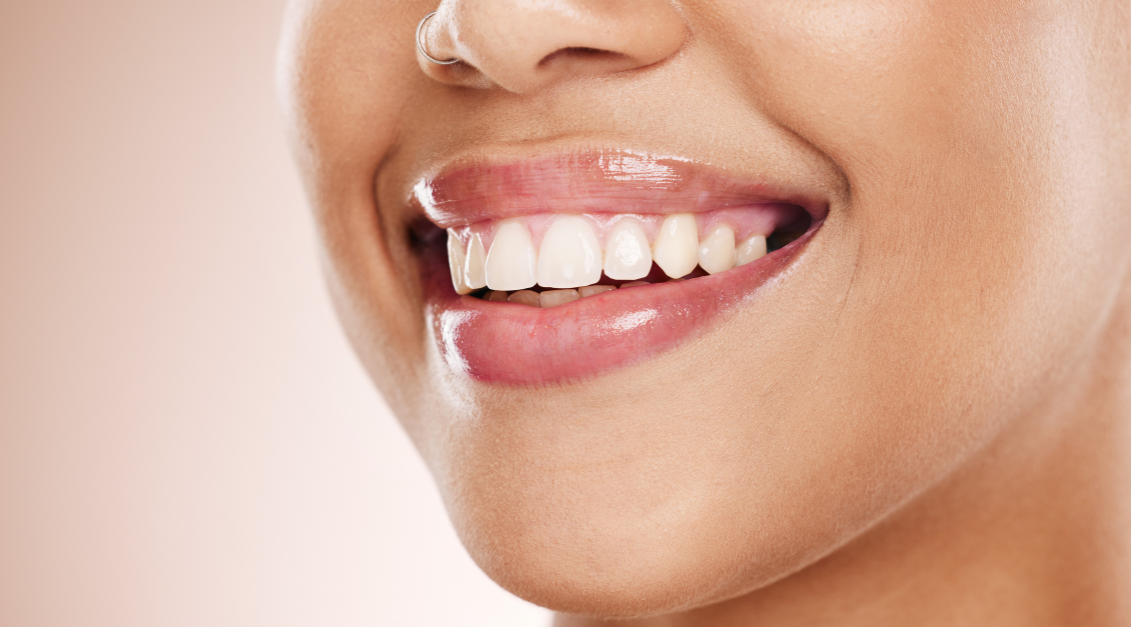Brushing is one of the most important daily habits for maintaining oral health. However, pressing too hard or using the wrong technique can harm the gums. At Dentaris, we teach our patients that the best way to protect gum tissue is to brush gently with soft bristles, using the correct angle along the gumline. This approach keeps your smile clean without irritating delicate tissues.
Many people believe that brushing harder means cleaner teeth, but research shows that too much force can actually wear down enamel and cause gum recession. Choosing a soft-bristled toothbrush—or an electric one with a pressure sensor—helps prevent this type of damage while still removing plaque effectively.
Healthy gums also depend on more than brushing alone. Daily flossing, rinsing with water after meals, and a balanced diet that supports oral health all contribute to long-term protection against gum disease and discomfort.
You might also be interested in how to clean implant-supported dentures.
Understanding Gum Damage from Brushing
How Brushing Can Harm Gums
Aggressive brushing can irritate or even tear gum tissue. Using hard-bristled brushes, abrasive toothpaste, or scrubbing horizontally along the gumline can all cause damage. Over time, this leads to gum recession, sensitivity, and exposure of root surfaces.
At Dentaris, we recommend soft-bristled brushes and gentle circular movements to clean effectively while avoiding unnecessary pressure. Electric toothbrushes with pressure sensors can also help maintain a safe brushing force.
Signs of Gum Damage
- Bleeding when brushing or flossing
- Gum sensitivity or soreness
- Recession, where teeth appear longer and roots begin to show
- In advanced cases, persistent bad breath, loose teeth, or shifting bite alignment
Recognizing these early signs is key. If you notice them, schedule a check-up with your dentist at Dentaris for personalized guidance.
Choosing the Right Tools for Gentle Brushing
Soft-Bristled Toothbrushes
Soft bristles are less abrasive yet effective at removing plaque. Rounded tips and a small to medium head make it easier to clean around the gumline and hard-to-reach areas.
Manual vs. Electric Toothbrushes
Both can work well, but electric toothbrushes often help patients who tend to brush too hard. Oscillating or sonic models apply consistent motion and reduce the risk of gum injury.
Choosing the Right Toothpaste
Fluoride toothpaste strengthens enamel and supports gum health. At Dentaris, we often recommend stannous fluoride formulations, which also help reduce sensitivity and inflammation. Patients with sensitive gums should avoid abrasive pastes that may irritate tissue.
Proper Brushing Techniques to Protect Gums
Optimal Angle and Motion
Hold the toothbrush at a 45-degree angle to the gumline. Small, circular motions clean where teeth and gums meet without scraping or cutting into tissue.
Applying the Right Pressure
Light pressure is enough to remove plaque. If bristles flatten against the tooth, you are pressing too hard. A simple test is to hold the brush with just your fingertips—this naturally limits excessive force.
Brushing Duration and Frequency
Dentaris recommends brushing for about two minutes after every meal. This ensures plaque does not remain on the gumline long enough to harden into tartar.
Cleaning the Gumline
The gumline is where plaque tends to accumulate. Angle the bristles slightly beneath the gum margin without forcing them too deep. This removes bacteria while protecting gum tissue.
Supporting Gum Health Beyond Brushing
The Role of Flossing
Flossing once daily removes food and plaque between teeth, reducing inflammation. Alternatives such as interdental brushes or water flossers can also be effective, especially for patients with dental implants or orthodontics.
Mouthwash for Added Protection
Antimicrobial rinses reduce bacteria and inflammation, while fluoride rinses strengthen enamel near the gumline. Alcohol-free options are often best for patients with sensitivity.
Nutrition and Gum Health
A diet rich in vitamin C, calcium, and vitamin D supports gum and bone health. Limiting sugar intake lowers plaque buildup and reduces the risk of gum disease.
Regular Dental Check-Ups
Professional cleanings at Dentaris remove tartar and detect early signs of gum irritation or disease. Most patients benefit from visits every six months, though some may require more frequent care depending on their risk factors.
Frequently Asked Questions
What is the proper brushing technique to avoid gum damage?
Hold the brush at a 45-degree angle toward the gumline and use small, gentle circular motions. Avoid harsh horizontal scrubbing.
Can brushing too hard cause gum recession?
Yes. Brushing with too much force gradually wears down gum tissue. Using a soft-bristled toothbrush and applying light pressure can prevent this.
What are the early signs of gum damage?
Bleeding, swelling, gum tenderness, or visible recession are common indicators. If these occur, visit your dentist for evaluation and advice.
How often should I brush my teeth for healthy gums?
At Dentaris, we recommend brushing after every meal. This prevents plaque from staying long enough to irritate the gums or harden into tartar.
What type of toothbrush is safest for gums?
A soft-bristled toothbrush with rounded tips is best. It cleans effectively while protecting sensitive gum tissue from abrasion.
How should children brush to avoid harming their gums?
Children should use a small, soft-bristled toothbrush. Parents can guide them with gentle circular motions along the gumline until they develop proper technique.
Protecting Your Smile Starts with Gentle Brushing
Healthy Gums, Lasting Confidence
Protecting your gums is just as important as caring for your teeth. With the right tools, technique, and guidance, you can maintain strong, healthy gums for life. At Dentaris in Cancun, Dr. Joaquín Berrón and our team combine advanced knowledge with a personalized approach to help patients from around the world protect their oral health.
If you want to learn more about gentle brushing and gum care, we invite you to explore Dentaris and our preventive dentistry services. Our team is here to ensure your gums stay healthy, your smile stays bright, and your dental care journey feels safe and supported.




















